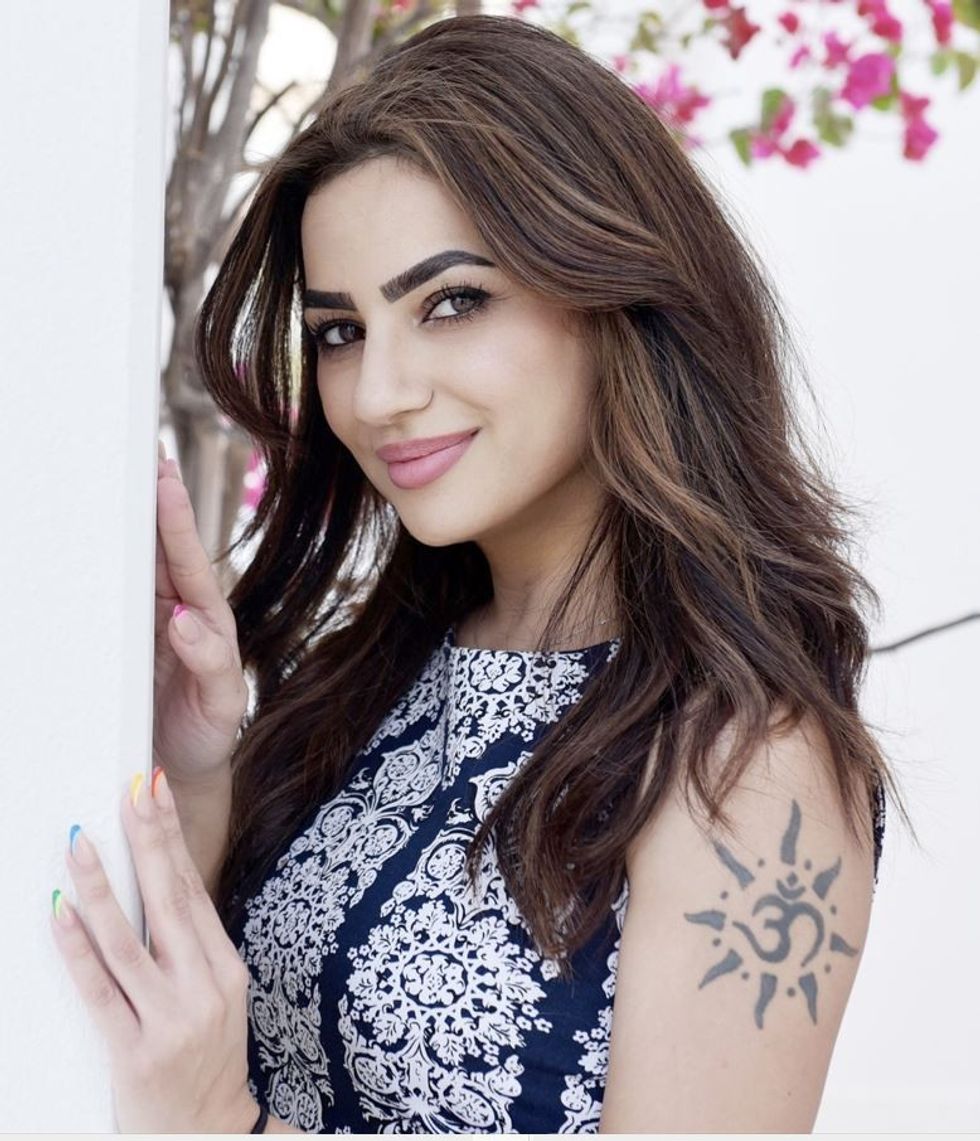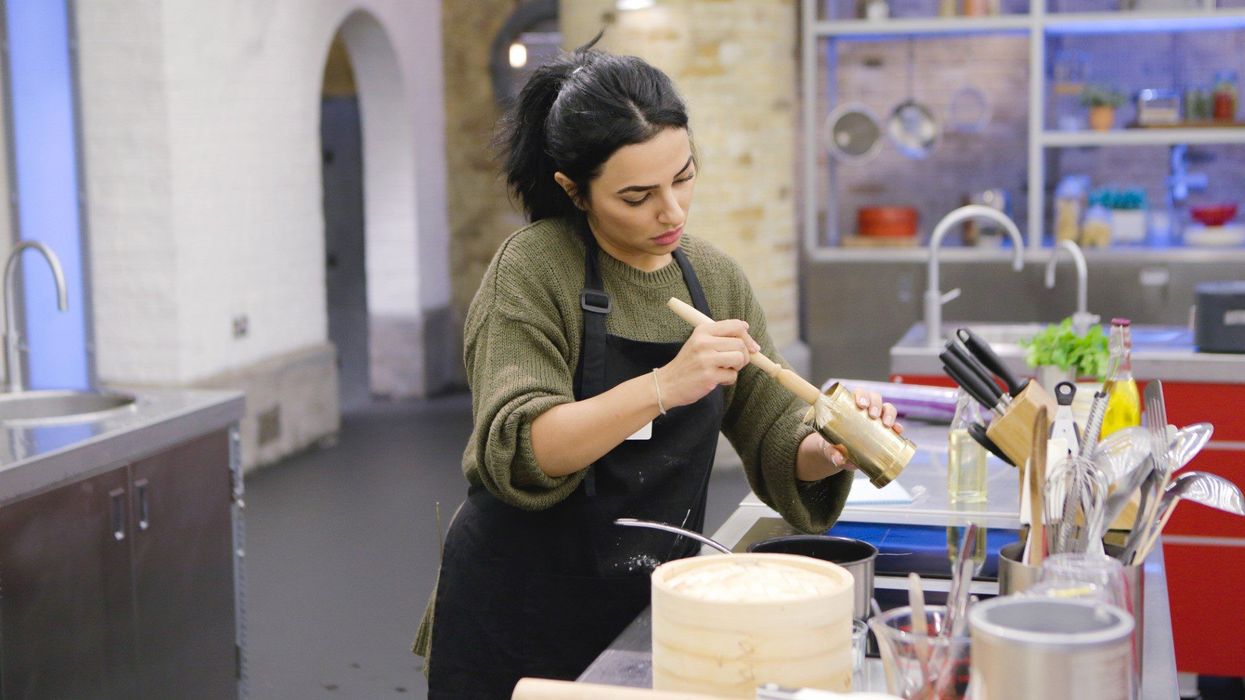BEING selected as a contestant on the most recent season of MasterChef UK was a happy and sad moment for Diya Kotecha-Lodhia.
The talented chef’s late mother had wanted her to apply for the show but passed away years before that dream became a reality. Although she didn’t win the iconic show, the memorable appearance was a homage to her beloved mother and a personal victory.
What she describes as a fun and fantastic experience added to a cooking story, which began as a child and has exciting chapters ahead.
Eastern Eye caught up with the kitchen queen to discuss her journey, MasterChef appearance, future plans and top cooking tips. She also revealed the importance of her Gujarati heritage and the power of food to bring people together.
What first connected you to cooking?
I have been cooking since the age of four. I’ve always thoroughly enjoyed it. While other kids played with dolls and toys, my favourite hobby was literally watching my mother cook up a storm in the kitchen and letting me have a go. After 35 years of cooking, I’m learning so much more about food with each day.
How has working in the travel industry fuelled that passion?
Having travelled to more than 50 countries, the different cultures and cuisines inspired me significantly. Working in the travel industry for over 22 years has given me the opportunity to see the world, which reflects in my style of cooking.
As a British-born chef with Gujarati roots, how has your Gujarati heritage been influential?
Being born in a Gujarati family, food is an integral part of our daily lives. If it’s not cooking, it’s thinking about what to make for our next meal. I have very fond memories of my mother making a full three-course meal every single day, which had so much variation, with all the traditional much-loved Gujarati dishes. Until today, I try to make as much variation as possible, despite having a busy life, because it’s imprinted in me.
What was the most challenging aspect of competing on MasterChef UK?
There were loads of challenging aspects of competing on MasterChef. A significant one was having to produce a number of dishes in a limited amount of time, in a kitchen that is not yours, surrounded by cameras, and with other people cooking as well, while being interviewed. Once all that is over, it’s that long wait to find out whether you have done enough to make it through to the next round.
What was your most memorable experience from the show?
My most memorable moment was getting my very first apron. That alone for me was a moment of victory. I didn’t think I was going to even go through to the next round, but then to be told I’ve made it, with the very top dish of the day, was the happiest and ecstatic moment for me.
What has been the biggest source of inspiration in your culinary journey?
My biggest inspiration for my cooking journey has to be the very first person who taught me how to cook, my mother. My travel experiences have been a great inspiration behind my dishes. Also, watching famous TV chefs such as Jamie Oliver, Gordon Ramsay, Michel Roux Jr, and Rick Stein only made me want to cook even more, as they made it look so easy.
What are some cooking tips or techniques that you can share?
The most important thing with food is that it shouldn’t be a chore. It should be fun. When this becomes a fun thing, your food will naturally start tasting so much better. Another important aspect is to take risks and play with ingredients. Not everything works, but at least you know what works for you, and how it can be improved for next time. Pushing the boundaries will push you to do better.

What role do you think food plays in breaking down cultural barriers and building understanding between communities?
Food is absolutely everything. It brings everyone together, unites people and cultures, and builds understanding in people’s minds, of the world that we live in. I have even mentioned from the very start on my blog that food brings people together. There is something about cooking for everyone and seeing them appreciate your food - it is the most fulfilling and happy feeling.
What’s next for you in your culinary career?
Being part of MasterChef was a major confidence boost and helped me believe that there is more I can do to follow my cooking passion. At this stage I have two children, a five-year-old and a one-year-old, so life is a little stressful. But in the next year, I hope to write a cookbook with different cuisines that come together in a celebrated amalgamation of cultures.
What else do you have on the way?
I am also currently working with a few brands that have approached me to create recipes, which I’m excited about. I’m also looking forward to working with an organisation that promotes women’s empowerment.
Finally, if you could cook a meal for anyone in the world, who would it be?
I would take it back to my past, and re-create recipes my mum made, growing up. Waking up on a Sunday morning, to the smell of full nasto of puris, ghatiya, jalebi, dhokla and thepla. That was a moment of pure bliss, which I would like to recreate for my dad, sister, husband and children. Ultimately, it’s about remembering who you are and where you’ve come from, which is the most important life lesson my mother taught me.




